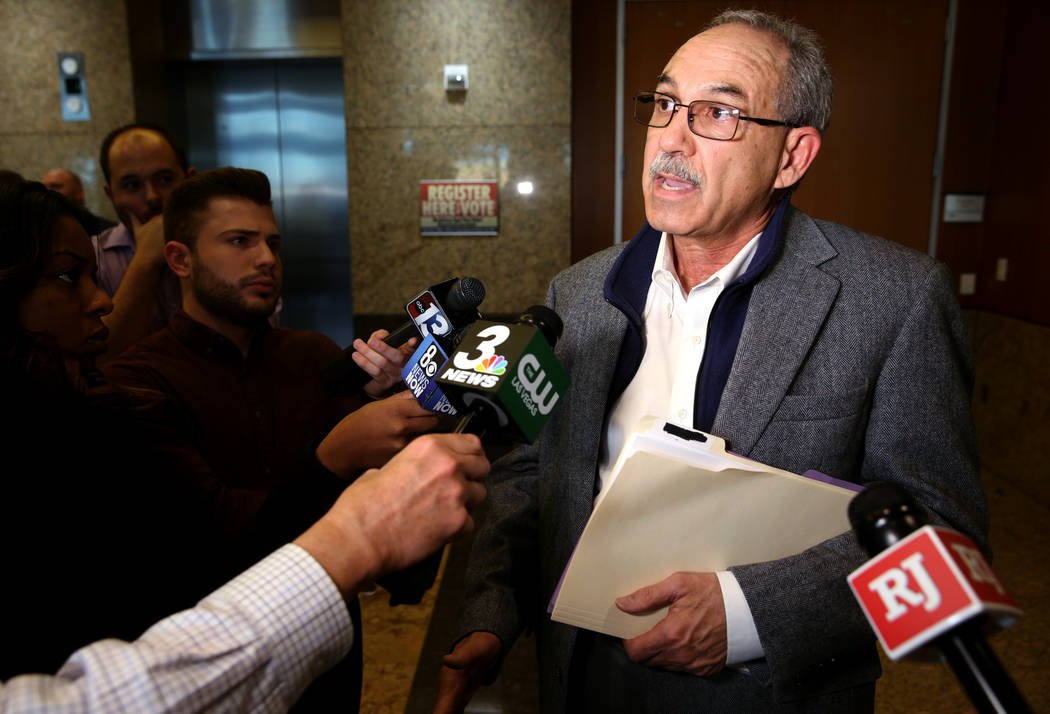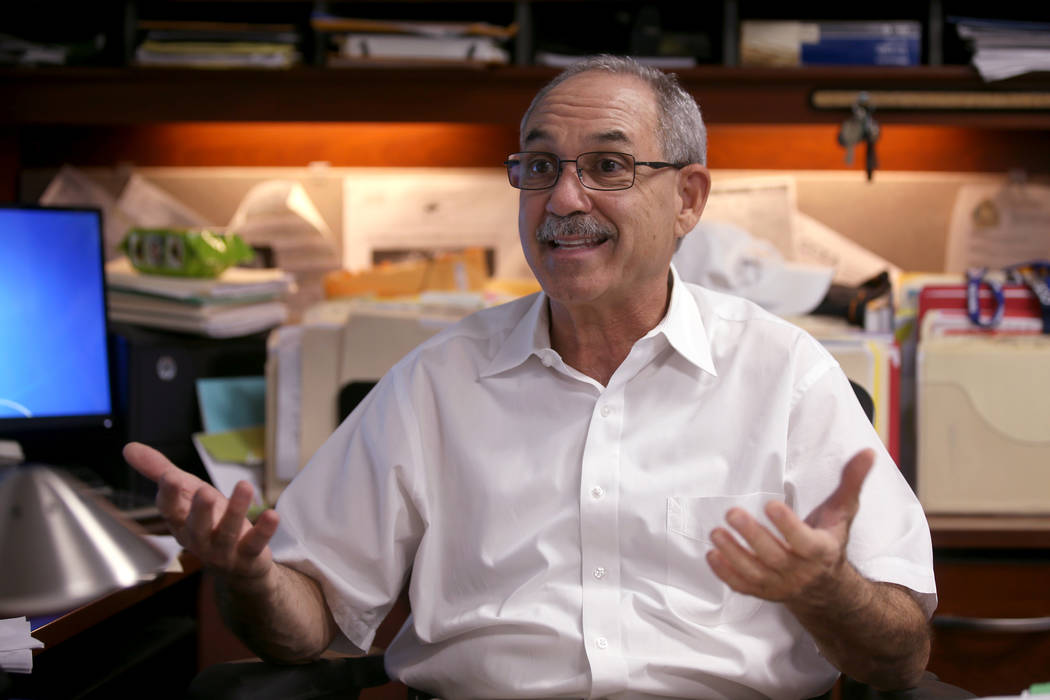STEVE SEBELIUS: Sales tax for schools may be a hard sell to Nevada voters
There was a lot of speculation when the Clark County Education Association announced months back that it would circulate a pair of ballot initiatives to raise taxes for schools.
Last week, the union rolled out its plans in dramatic, reality-TV style.
On Tuesday, it announced the first initiative would create a new, fourth tier in the state’s gaming taxes. The new 9.75 percent rate would apply to all gambling revenue of $250,000 per month or more. It would raise an estimated $315 million every year.
A lot of voters probably wouldn’t mind signing a petition to raise the gaming tax, which was last increased 17 years ago — and then by just half a percentage point. There are good arguments against the idea: Gambling revenue is a shrinking part of the resort pie; the ubiquity of casinos in Nevada makes competition tougher, unlike in other states where licenses are limited and taxes are higher; and the tax collections can rise and fall as disposable income does.
Speculation then increased about the second announcement.
A mining tax? Voters almost approved repealing the constitutional cap on mining taxes in 2014, rejecting the statewide measure by a narrow 50.3-49.7 margin. Voters in urban Clark County especially wouldn’t mind taxing companies that literally dig up gold (on publicly owned lands, no less!).
A lottery? This idea remains popular with voters, who frequently wonder why Nevada doesn’t have one. (Answer: It is banned in the state constitution and is opposed by casino companies. But the union just proved it doesn’t care about offending gamers, right?)
A state income tax, perhaps? This is also banned by the constitution and would be a sure-fire loser with voters, some of whom moved to Nevada in part to avoid a state income tax.
The union’s ultimate answer came Wednesday: a sales tax increase. A simple, 1.5-percentage-point hike in the local school support tax, from 2.6 percent to 4.1 percent. Revenue from the tax is already set aside for schools.
Politically, this could be a hard sell. The union could almost certainly get the signatures for the initiative and may be hoping that the 2021 Legislature enacts the measure outright, which would avoid having to put the question on the 2022 ballot. But persuading lawmakers to raise taxes — and first-term Gov. Steve Sisolak to sign off a year before he runs for re-election — may be problematic.
The campaign against it has plenty of ammo: A sales tax is regressive, hitting poor people harder. It’s also unstable, falling in a recession. It would push the Clark County sales tax rate to 9.875 percent, making Las Vegas No. 7 on the list of U.S. cities with the highest sales taxes, according to the Tax Foundation.
To be fair, the union didn’t have a lot of choices, especially because it set a goal of raising $1 billion.
Officials could have chosen to wade into the much more complex debate over property taxes, which rose so quickly in the boom years that lawmakers capped them — caps that depressed government revenues as the state climbed out of the recession. A property tax hike would also have been politically unpalatable, even if they are a much more stable (and much more traditional) source of funding for ongoing public needs, such as schools.
Another issue: There’s nothing in the initiative to prevent the Legislature from taking money away from schools in light of the new money. That kind of supplanting has plagued school funding before.
There’s also nothing in the measure about what taxpayers can expect to get in exchange for signing a petition and perhaps voting to raise the sales tax. That’s not at all surprising because it’s the union’s job to advocate for teachers, not for better education outcomes. But it’s a question some taxpayers may want answered before they say yes.
The Clark County Education Association has had some successes in the past, and perhaps it can overcome the political obstacles and get these proposed taxes passed. But there’s also the recent example of 2014’s 2 percent margins tax on business proffered by the Nevada State Education Association, the statewide union that’s had a bad breakup with its Clark County counterpart. That measure went down to failure, 79 percent to 21 percent.
It’s a fair question: If voters wouldn’t tax business, will they be eager to tax themselves?
Contact Steve Sebelius at SSebelius@reviewjournal.com or 702-383-0253. Follow @SteveSebelius on Twitter.
























